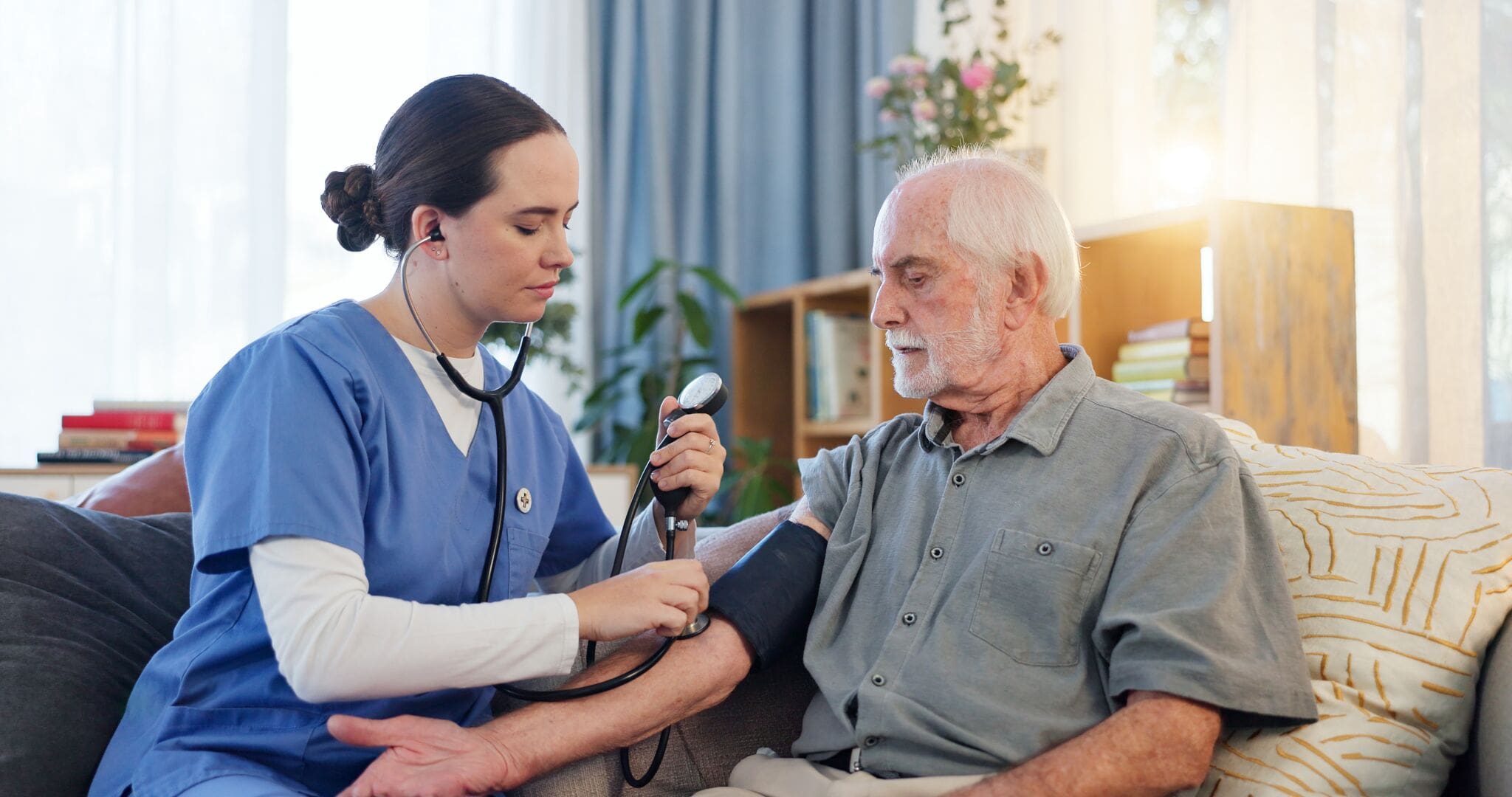In this article
Mental health issues among children and young people are a growing concern, with increasing demand for school counselling and specialist support. The Mental Health of Children and Young People in England 2023 report, found that 20.3% of 8 to 16-year-olds had a probable mental disorder in 2023.
Things that can increase the risk of children experiencing a mental health issue can include:
- A family history.
- Bullying
- Difficulties at school.
- Difficulties at home.
- Abuse, this can include physical, emotional or sexual.
- A bereavement.
- Physical health difficulties or a disability.
- Drug and alcohol use in children.
Social media use has also been linked to having a negative impact on children’s mental health in some cases. Internet use can expose children to dangers, such as cyberbullying, online grooming and sexual abuse. Children can easily be exposed to unsuitable or harmful materials online which can cause emotional harm. Think U Know provide some helpful online safety advice and resources around this.
School counsellors don’t only work with children who have a diagnosed mental health condition, especially as in these cases the children may need more specialised support. A school counsellors’ role is usually much broader than that and includes early intervention, general emotional support, and preventative work. A school counsellor is important for preventative work because they can step in early, before problems become serious and help students build the skills to manage future challenges.
Many students who see a school counsellor are struggling with everyday issues like stress, friendship problems, low confidence, or family changes. They don’t necessarily have a mental health condition but still need support from a counsellor. Children are still learning the skills to be able to problem solve, and may not know what to do with strong emotions as they don’t always have the words or understanding to process them.
This can lead to frustration, withdrawal, or outbursts. Even small changes in routine, friendships, or home life can feel huge to a child because they rely heavily on consistency for a sense of safety. Children also have little control over their environment, and feeling powerless can increase anxiety and stress. Supporting children means recognising that even seemingly minor issues can be significant for them, and helping them build the skills to be able to manage stress over time.
What is the role of a school counsellor?
Students can face a wide range of academic, social, and emotional challenges. School counsellors play a vital role in supporting young learners, helping them navigate these difficulties and achieve personal and academic success.
More than career advisors or occasional mentors, school counsellors are trained professionals who provide essential guidance in mental health, academic planning, and social development. They work closely with students, teachers, and parents to create a supportive school environment where every child can thrive and it offers a safe space for students to talk about personal issues like anxiety, bullying, family problems, or friendships. A school counsellor can:
- Help students build coping strategies and resilience.
- Support positive behaviour and focus on conflict resolution.
- Work with students to identify barriers to learning such as motivation, concentration, or organisation.
- Provide strategies for time management and study skills.
- Liaise with teachers about individual students’ needs or concerns.
- Monitor for signs of abuse, neglect, or other safeguarding concerns.
- Works closely with designated safeguarding leads.
- Can refer students to external mental health services if needed.
- Help with course or subject selection.
- Supports students preparing for transitions like moving to secondary school, sixth form, or employment.
- Work with parents, teachers, pastoral teams, and external agencies.
They work as part of multi-agency teams supporting a student’s needs holistically. They should understand the role of social care, CAMHS, the police, and other agencies that may be involved with the child and may need to contribute to safeguarding meetings or plans if needed. They do not diagnose or offer long-term therapy but can be a first point of contact and provide early intervention or ongoing support.
How do school counsellors support students?
School counsellors play an important role in supporting students’ emotional, social, and academic development. Their key responsibilities include:
- Mental health support – providing one-to-one or group counselling sessions to help students manage anxiety, depression, stress, and other mental health concerns. These sessions provide a space where students can talk about anxiety, low mood, family issues, or anything else affecting their wellbeing.
- Behavioural guidance – assisting students in developing positive coping strategies and addressing behavioural issues. Teaching emotional regulation and coping strategies is also be a big part of a counsellors’ role.
- Academic support – helping students with study skills, motivation, and career planning. This may involve working with students who are struggling to focus, stay motivated, or manage workload, including offering guidance on goal setting, revision strategies, or time management. A school counsellors’ role may also involve supporting students returning to school after absence or exclusion.
- Safeguarding – identifying and reporting concerns about abuse, neglect, or exploitation in line with safeguarding policies. The role can also involve supporting students through the safeguarding process and working with the designated lead and external agencies.
- Crisis intervention – offering immediate support during incidents such as bullying, self-harm, or family issues. This aspect would involve working with the child and also advising other professionals of next steps.
- Peer relationships – mediating conflicts and helping students develop healthy social skills. This may also involve running group sessions on topics like friendship, self-esteem, or respect.
- Parent and teacher collaboration – working with families and school staff to create a supportive environment for students.
- Transitions and change – this involves helping students settle in after moving schools or arriving from another country and offering guidance around life events like family breakdown or bereavement.
Many schools also link with external mental health services, for example CAMHS for additional support.

Types of school counsellors
There are different types of school counsellors and they may work in different capacities:
- Primary school counsellors – with a focus on emotional and social development, and often using play therapy or art-based techniques. A primary school counsellor may help children who feel sad, anxious, angry, or confused. Child-friendly approaches like drawing, storytelling, or games can help them talk about their feelings rather than just having a conversation and can feel less intimidating for the child. Supporting children with problems like falling out with friends, feeling left out, or struggling with behaviour in class or on the playground. A primary school counsellor will also have a focus on building self-esteem and resilience, working with children who lack confidence or struggle with change. Some of the issues may include family break-ups, moving house, or new siblings.
- Secondary school counsellors – often address different issues like exam stress, relationships, and career decisions. A secondary school counsellor supports students through the more complex emotional, social, and academic challenges that often emerge during adolescence. Mental health and emotional support may include one-to-one sessions for students struggling with anxiety, low mood, self-harm, or stress. Depending on the specific counsellor and their training or qualifications, they may use talking therapy, CBT tools, or solution-focused approaches.
- Special Educational Needs (SEN) counsellors – are in place to support students with disabilities or learning difficulties. A special education needs (SEN) counsellor supports students with additional needs by adapting counselling approaches to meet a wide range of cognitive, emotional, behavioural, and communication differences. Their work needs to be flexible, practical, and closely linked with other professionals. They may offer adapted emotional support using visual aids, simplified language, sensory tools, or structured routines to help students express feelings and understand emotions. They may use play, art, or movement-based therapy instead of traditional talking during their sessions. They may support with transitions and change, prepare students for school changes, staff changes, or life events using step-by-step plans, social stories, and desensitisation approaches. They may help students understand and regulate emotions that affect behaviour, work on recognising triggers, using calming strategies, or exploring safe ways to express frustration. Special educational needs counsellors will often work with speech and language therapists or uses tools like Makaton, PECs, or visual timetables to support students who are non-verbal or have limited speech. They will often work closely with teachers, SENCOs, TAs, and parents to share strategies and support consistent approaches across school and home. More specialist input may be needed depending upon the individual child’s needs. An SEN Counsellor needs patience, flexibility, and an understanding of conditions like autism, ADHD, speech and language disorders, and learning disabilities.
- Pastoral care staff – some schools employ non-specialist pastoral staff who provide basic counselling alongside teachers. Pastoral care staff in schools can offer emotional support, but they are not counsellors unless they hold a recognised counselling qualification. Their role can involve listening to students and offer a safe space to talk, support students through everyday issues like friendship problems, attendance concerns, low mood, or stress, monitor wellbeing and refer to the school counsellor or safeguarding lead if needed, work with families and staff to support students consistently, run wellbeing activities, mentoring, or group support sessions. They should not offer therapy or in-depth counselling without proper training, handle serious mental health issues alone, or replace specialist mental health or counselling services. Many schools train pastoral staff in mental health first aid or basic listening skills, but this isn’t a substitute for formal counselling. Their role is usually first-line support and referral, not diagnosis or therapy.
- External agency counsellors – some schools contract private or charity-based counsellors, for example Place2Be or Barnardo’s.

What skills does a school counsellor need?
Effective school counsellors require a mix of interpersonal and professional skills including:
- Active listening – this means fully concentrating on what a student is saying, picking up on tone and body language, and responding in a way that makes them feel heard and safe. It avoids interrupting, judging, or rushing to find a solution and the ability to understand students’ concerns without judgment.
- Empathy and compassion – a counsellor needs to connect with how a student is feeling, even if they haven’t had the same experience. This helps build trust, especially with young people who may have never spoken to an adult about their feelings before. Being able to build trust with young people from diverse backgrounds is also important.
- Communication – it is important to use clear, calm, and age-appropriate communication. Counsellors must explain concepts simply to students and present information clearly to parents, teachers, or other professionals, adjusting their tone and language as needed. It is also important to be able to explain concepts clearly to students, parents, and teachers.
- Confidentiality management – a counsellor must understand confidentiality, knowing when to keep information private and when to escalate safeguarding concerns.
- Problem-solving – this involves helping students develop strategies to overcome challenges and developing confidence.
- Resilience – being able to manage the emotional demands of the job and maintaining professional boundaries.
- Assessment and observation – this involves noticing patterns in behaviour, including picking up early signs of emotional or mental health issues, and knows when to refer on to another service.
- Adaptability – this includes being able to work with a range of students, including those with SEND, different cultural backgrounds, or challenging circumstances.
- Cultural awareness – this includes understanding different family structures, religions, and socio-economic factors.
School counsellors must have a clear, working understanding of safeguarding. They are often one of the first to hear disclosures from students and are in a position of trust. They need to understand the school’s safeguarding policy and know how to follow the school’s procedures for reporting concerns. This includes knowing who the Designated Safeguarding Lead is and how to escalate concerns quickly. They will need to understand what constitutes a safeguarding concern, understand signs of abuse, exploitation, domestic abuse, self-harm, mental health risks, online risks, and other safeguarding issues, for example FGM or forced marriage.
A counsellor should be clear with students that while they offer a safe space, they cannot keep certain disclosures confidential, especially if there’s a risk of harm to them or someone else. They should be able to explain this clearly to students at the start of a session. They should also keep accurate, factual records of any concerns.
When responding to disclosures, a counsellor should know how to respond calmly, listen without judgement, avoid leading questions, and reassure the student that they’ve done the right thing. They are not responsible for investigating, and must report what they have been told.
Safeguarding training should be up to date, usually yearly, and this includes Prevent Duty and Keeping Children Safe in Education updates.
What qualifications does a school counsellor need?
While there is no single mandatory qualification, most school counsellors have:
- A recognised counselling diploma or degree.
- Accreditation by a professional body such as the British Association for Counselling and Psychotherapy (BACP), UK Council for Psychotherapy (UKCP), or National Counselling Society (NCS).
- Enhanced DBS Check which is required for when working with children.
- Safeguarding training as schools often require up-to-date safeguarding certification.
Some counsellors also pursue additional training in child and adolescent therapy, Cognitive Behavioural Therapy, or trauma-informed approaches. This additional training can be beneficial as it deepens their understanding and improves the quality of support they can offer. Child and adolescent therapy training focuses on how children develop emotionally and psychologically. It helps counsellors tailor their methods to be age-appropriate and accessible. Trauma-informed training helps counsellors to recognise the signs of trauma, respond sensitively, and avoid triggering students further. This is especially important in schools where students may have experienced abuse, neglect, or other instabilities.

What experience does a school counsellor need?
Prior experience is important for a school counsellor because the role involves complex, real-world challenges that go beyond theory or training alone. Experienced counsellors are more likely to spot subtle warning signs early and know when to act. They are less likely to be overwhelmed or make poor decisions under pressure. Prior experience means they will have dealt with real safeguarding concerns before. They know how to respond to disclosures, how to escalate, and how to remain calm. Schools need to be confident that a counsellor understands safeguarding, professional boundaries, and how to manage sensitive disclosures. Experience brings familiarity with working alongside teachers, safeguarding leads, social care, CAMHS, and other services. This coordination is essential in school-based support.
Schools typically look for candidates with:
- Relevant counselling experience, ideally with children or young people, for example youth work, mentoring, or voluntary roles in schools.
- Placements or supervised hours as part of counselling training.
- Knowledge of the education system, including Special Educational Needs and safeguarding policies.
- Experience with specific issues such as bullying, anxiety, or family breakdowns.
Many counsellors start in voluntary roles, for example with charities or local youth services before securing school positions. Most school counselling roles require hands-on experience with children or young people. Volunteering is often the only way to gain this experience early on, especially during or just after training. Experience in the voluntary sector can lead to recommendations, references, or contacts in education settings. It also shows a commitment to working with young people.
Voluntary work adds weight to job applications as it shows initiative and makes a counsellor more competitive in a field where paid school-based roles are limited and are often highly sought after. It is a practical stepping stone that helps counsellors’ bridge the gap between their training and a paid role in a school.
If you are looking for a school based counselling job, a good place to start is your local authority jobs website as most councils advertise school-based roles there.






